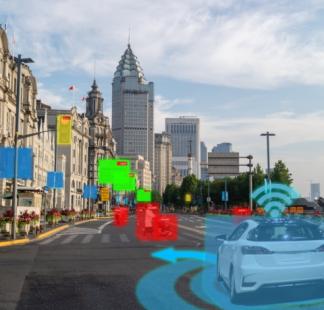Displaying 1 - 12 of 44
29 Mar 2026 - 02 Apr 2026
Online instructor led
This training course focuses on equipping participants with foundational knowledge and practical skills in Spectrum Monitoring. It emphasizes the…
Registration:
Open until 08 Mar 2026
Languages:
- Arabic
- English
20 Apr 2026 - 23 Apr 2026
Online instructor led
The course explains the e-governance legal framework and its various components. The course introduces the e-governance general legal concept and the…
Registration:
Open until 17 Apr 2026
Languages:
- English
Open
Online self-paced
This course aims to raise awareness of what Mobile Phone Data is and to showcase how it can be applied at a National Statistical Organisation (NSO).…
Languages:
- English
27 Apr 2026 - 29 Apr 2026
Online instructor led
In our interconnected world, Quality of Service (QoS) and Quality of Experience (QoE) are essential metrics for telecom regulators and operators.…
Registration:
Open until 06 Apr 2026
Languages:
- English
05 May 2026 - 07 May 2026
Online instructor led
The course introduces the core principles of CIIP from a national cybersecurity perspective. Day one focuses on methodologies for identifying and…
Registration:
Open until 28 Apr 2026
Languages:
- English
Open
Online self-paced
A practical guide for universal access and service implementation, this toolkit offers analytical tools, examples, and templates to assist policy-…
Languages:
- English
- Portuguese
- Other
05 Jun 2026 - 15 Jul 2026
Online instructor led
Rapid development of digital technologies provides new opportunities for public policy. Technologies such as artificial intelligence, e-government…
Registration:
Open until 17 May 2026
Languages:
- English
15 Jun 2026 - 19 Jun 2026
Face to Face
A practical and engaging course designed for professionals in telecommunications, this program offers a well-rounded introduction to key tasks,…
Registration:
Open until 01 Apr 2026
Languages:
- English
Open
Online self-paced
Broadband mapping combined with modern Geographic Information Systems (GIS) and its practical knowledge supports efficient identification of…
Languages:
- English
- Portuguese
- Other
22 Jun 2026 - 26 Jun 2026
Face to Face
This summer school is designed to introduce participants to the concept of sustainable digital transformation through various subtopics, including…
Registration:
Open until 01 Mar 2026
Languages:
- English
23 Jun 2026 - 24 Jul 2026
Online instructor led
Many countries have begun to develop smart villages/towns/cities with varying degrees of success. This course focuses on the design and…
Registration:
Open until 16 Jun 2026
Languages:
- English
Open
Online self-paced
This course is aimed at providing guidance for developing table top simulation exercises which will help to test if NETPs and other national…
Languages:
- English









